On May 17, 2025, the international conference titled “A Shared Future – Building an Open and Inclusive Economic and Financial System” and the 2025 Tsinghua PBCSF Global Finance Forum successfully convened in Shenzhen, Guangdong Province.
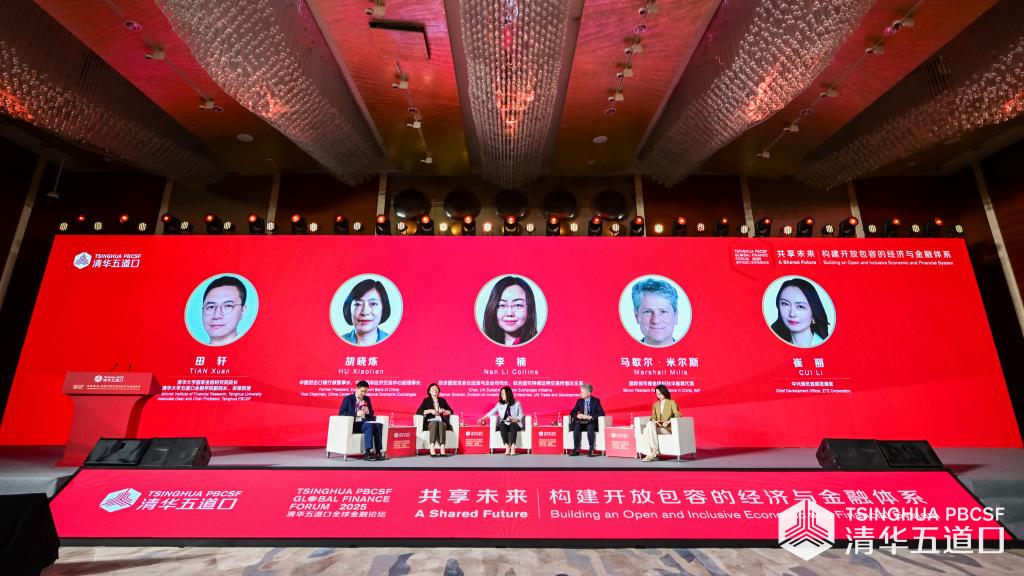
At the Global Finance Forum
That afternoon, Theme Forum II—“International Trade and Investment Amid New Global Realities”—was held with a distinguished lineup of speakers. Participants included Hu Xiaolian, former Chairwoman of the Export-Import Bank of China and Vice Chair of the China Center for International Economic Exchanges; Nan Li Collins, Director of the Division on Investment and Enterprise at UNCTAD and Chair of the UN Sustainable Stock Exchanges Initiative; Marshall Mills, Senior Resident Representative of the International Monetary Fund in China; and Cui Li, Chief Development Officer of ZTE Corporation. The forum was moderated by Tian Xuan, Dean of the National Institute of Financial Research at Tsinghua University, Vice Dean and Chair Professor at the Tsinghua PBC School of Finance.
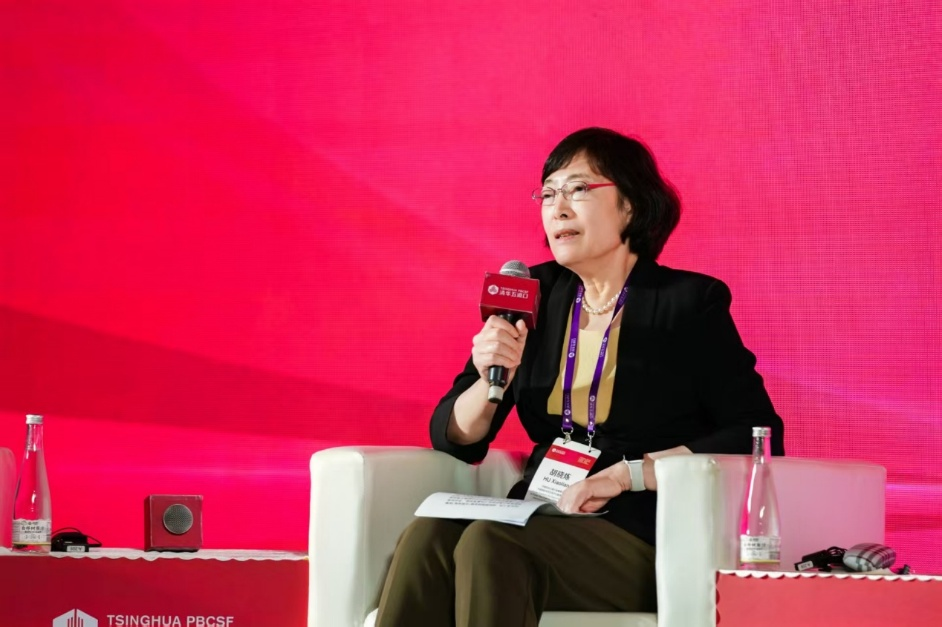
Hu Xiaolian
Hu Xiaolian delivered a keynote address titled “Evolving Patterns in International Trade and Investment Under New Global Conditions.” She emphasized that current tariff regimes are disrupting the global trade and investment system and called for a “threefold rebalancing” to navigate the future landscape.
A rebalancing of cost-benefit dynamics, noting that emerging markets in the Global South are poised to increase their share and influence in global trade and investment, whereas attempts to reshore manufacturing in the United States face considerable obstacles.
Secondly, the need for global trade rebalancing, highlighting that sustainable trade balances can only be achieved through structural adjustments within major economies themselves—in savings, consumption, and investment—rather than relying on external corrections.
Last, she called for a rebalancing of the global monetary system, predicting a shift toward greater pluralism and inclusivity. This trend, she explained, is reflected in the rising role of emerging market currencies in cross-border settlements, the growing experimentation with digital currencies in trade and investment, and the strengthening role of the IMF’s Special Drawing Rights (SDR) mechanism.
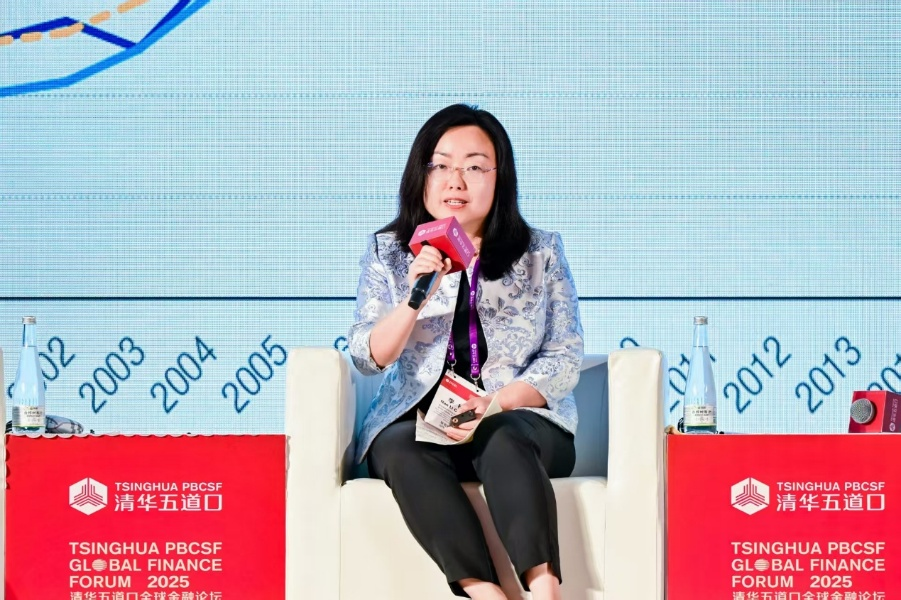
Nan Li Collins
Nan Li Collins, drawing on insights from the World Investment Report, reviewed the stagnation of international investment since the global financial crisis and its three-year decline following the COVID-19 pandemic. She attributed this to geopolitical tensions and rising protectionism. Since 2020, advanced economies have significantly increased trade and investment restrictions, especially in critical sectors, while developing countries have pursued more open policies such as investment facilitation.
She observed that South-South trade is growing but remains complex, often driven by re-export arrangements—for instance, a decline in direct trade between China and the U.S. has coincided with an increase in indirect trade through third countries such as Vietnam. Investment in sectors related to sustainable development, such as agriculture, infrastructure, and water, has dropped nearly 30%, and project financing has contracted sharply.
She noted that the drivers of trade and investment are evolving: while efficiency and cost remain relevant, increasing weight is being placed on supply chain diversification, geopolitical considerations, and national security. This shift has increased uncertainty and risk management costs, dampening investment intentions. Trade tensions and policy unpredictability, she warned, are undermining the global trading system and leading to economic fragmentation.
Collins announced that the 2025 edition of the World Investment Report, themed “International Investment in the Digital Economy,” will be released in late June. The report not only assesses global investment trends but also focuses on the fast-growing digital economy sector, which is expanding at an annual rate of 10–12%. In an era of global imbalances and rising inequality, she emphasized the need for inclusive policies to bridge the digital divide and share the dividends of digital transformation more equitably.
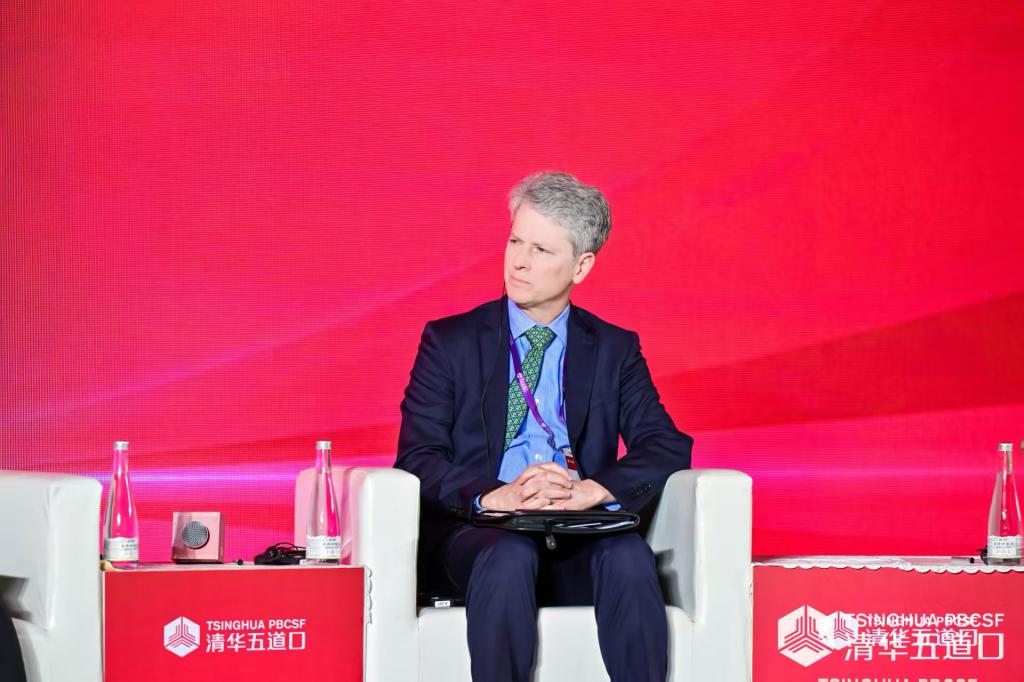
Marshall Mills
Marshall Mills warned that uncertainty in trade policy is discouraging corporate investment and weakening supply chain efficiency. He argued that trade tensions and unpredictability are suppressing global economic activity and hindering innovation. Citing IMF modeling, he noted that such policies have had negative effects on all major economies.
Mills called on governments to adopt constructive approaches to resolving trade tensions. He also offered targeted recommendations for China. In the short term, he suggested increasing fiscal spending to boost domestic demand and expanding social protection to shield vulnerable groups from external shocks. At the same time, he recommended that accommodative monetary policy continue to support demand growth, while the resilience of the banking sector should be strengthened.
Over the medium term, fiscal policy should facilitate structural adjustment in the real estate sector. In the longer term, he urged the implementation of structural reforms, including improvements to the social security system, reductions in reliance on industrial policy, and greater reliance on market forces to spur productivity and generate new growth drivers.
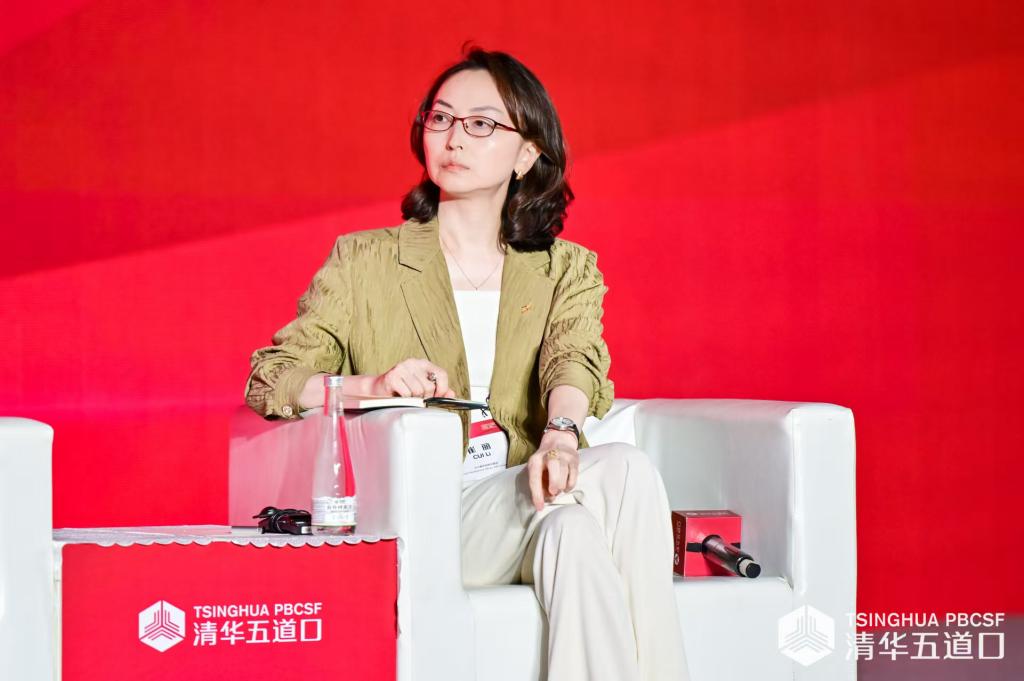
Cui Li
Cui Li, Chief Development Officer of ZTE, shared her insights as a corporate leader navigating globalization under current pressures, including intensifying digital sovereignty disputes and the growing imperative of sustainable development. She outlined five strategic responses.
She first underscored the need to strengthen product competitiveness to create offerings that customers cannot refuse. Then, she emphasized building long-term “moats,” citing ZTE’s continued annual R&D investment of nearly 20% of revenue-¥25 billion last year-as a core driver of long-cycle innovation. Thirdly, she called for organizational evolution, advocating for digital transformation toward more resilient, adaptive, and bio-intelligent systems that enhance compliance, supply chain resilience, and external connectivity. Fourthly, she stressed balancing light asset strategies with core capabilities, using ecosystem partnerships to address capability gaps. Lastly, she reaffirmed ZTE’s commitment to sustainable development through the diffusion of digital infrastructure, enabling technological spillovers and the global export of Chinese expertise to support the digital economy worldwide.
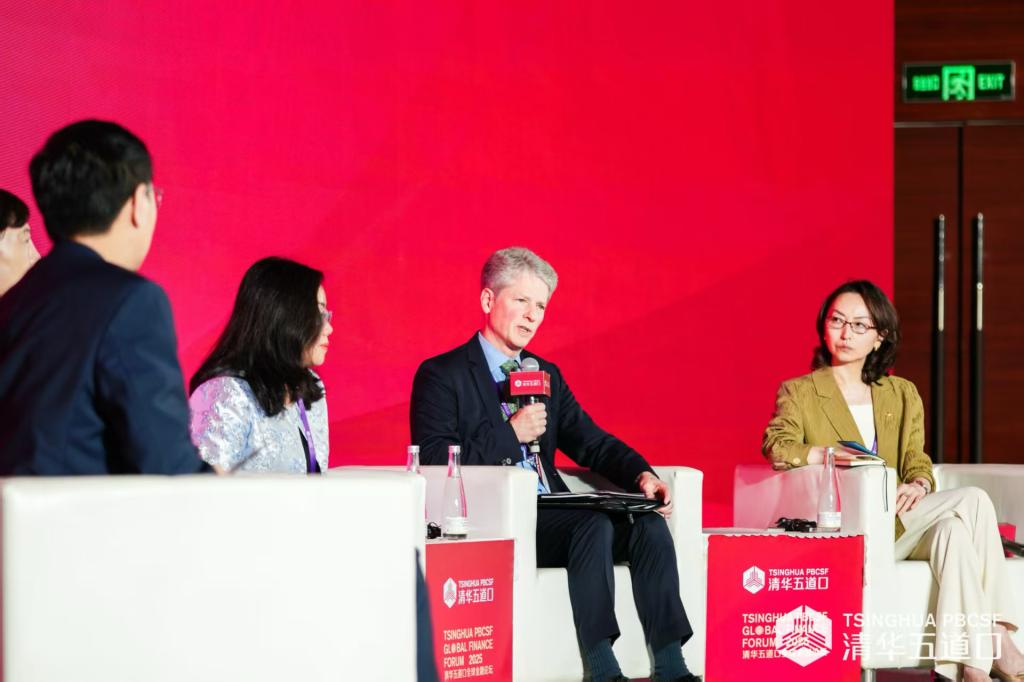
Panel Discussion
During the panel discussion, the panelists underscored resilience, innovation, and collaboration as keys to navigating global economic complexity.
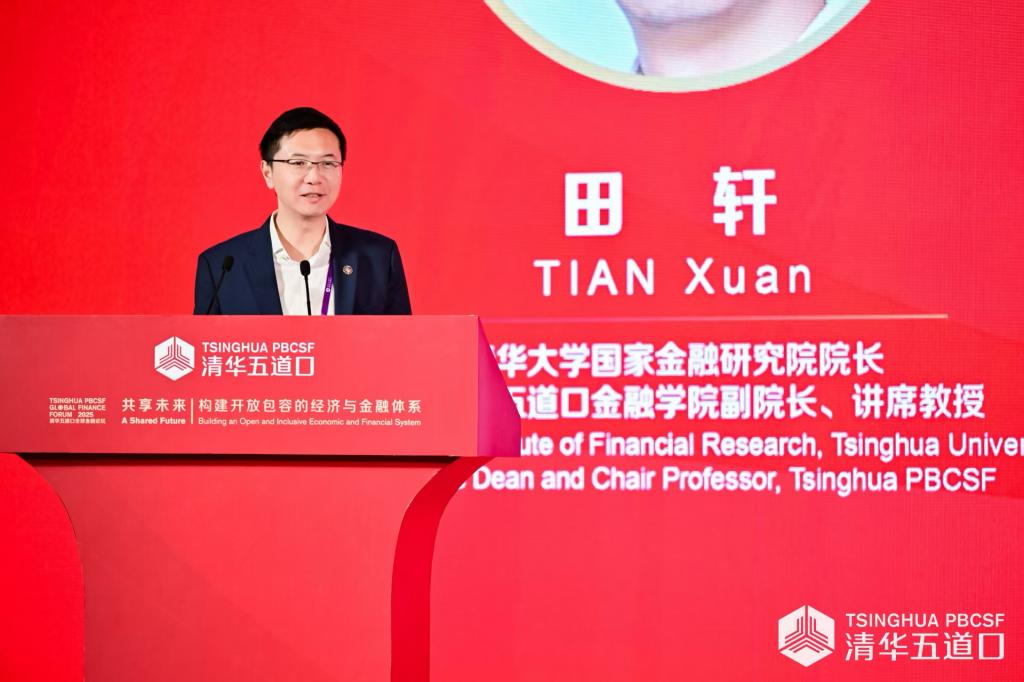
Tian Xuan
In his concluding remarks, Tian Xuan noted that the forum’s four keynote speakers collectively outlined a coherent logic chain spanning macro-level restructuring, policy tool innovation, and micro-level enterprise practice. Amid historic global shifts, he emphasized the importance of multilateral cooperation to overcome protectionist challenges, the pivotal role of the digital economy in reshaping growth momentum, and the potential of regional collaboration to enhance resilience. He concluded by asserting that China must find its strategic position between openness and indigenous innovation, thereby contributing wisdom and solutions to the evolving global economic governance framework.
Source: Center for Finance EMBA, Forum Secretariat
Written by: Li Yiran
Translated by: Ding Yuxi
Reviewed by: Zhou Wenjia